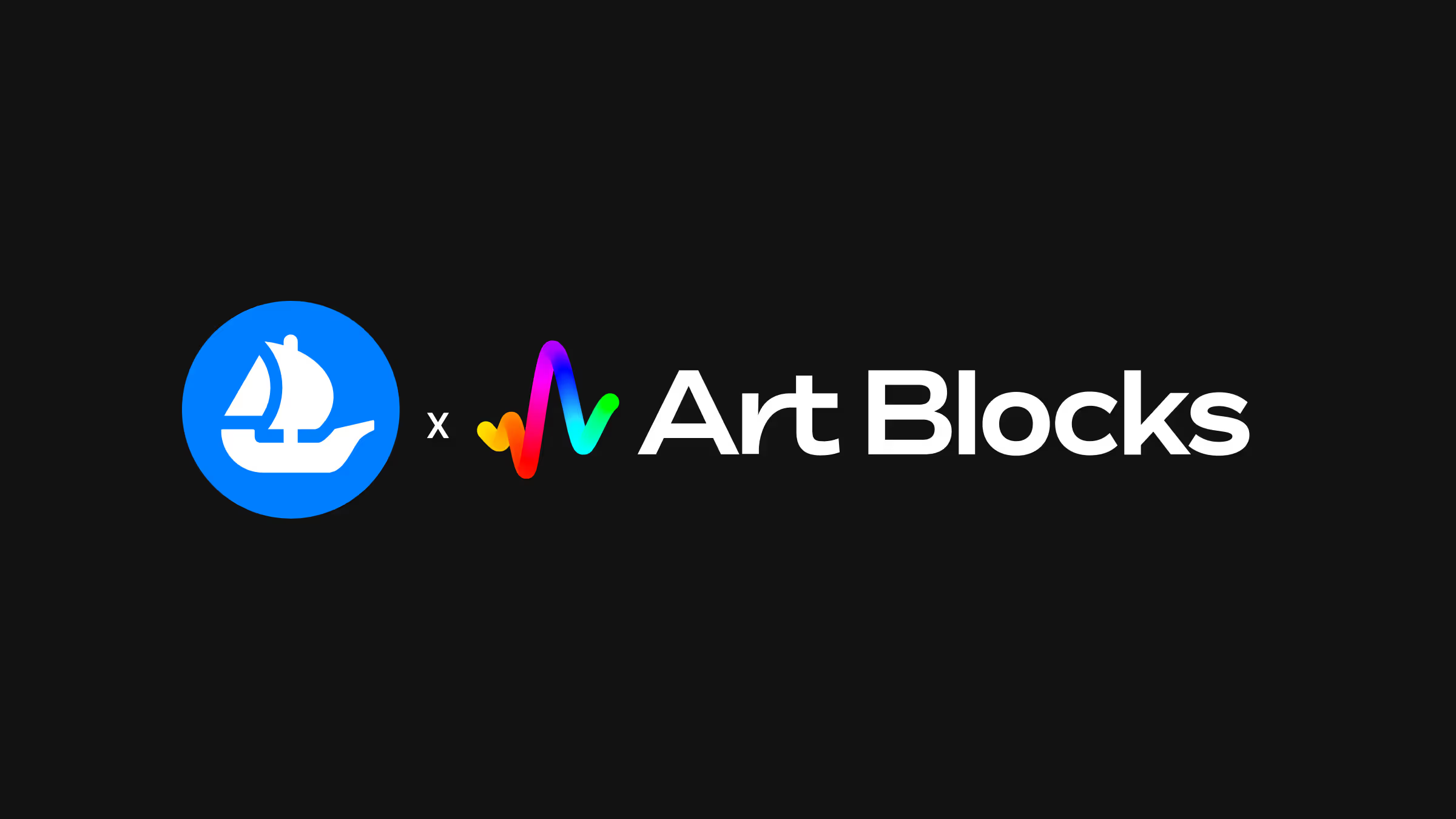Given the volatile crypto and NFT markets, prices aren’t the only thing swinging. Trust—arguably more elusive than any digital artwork—is increasingly under strain.
As scams, misleading endorsements, and sudden project failures continue to drive users away from web3, one startup is attempting to impose a kind of order: a verifiable, transparent way to track credibility in crypto.
The company, Ethos, is a reputation protocol that launched earlier this year. It allows users to publicly review one another, vouch for others with small amounts of cryptocurrency, and see a credibility score that aggregates peer signals across the blockchain. The system, which is already integrated with X (formerly Twitter) and OpenSea, aims to build a decentralized layer of trust across web3 platforms.
There is a market for the service: In 2024 alone, scams and fraud accounted for more than $9 billion in crypto losses worldwide, according to the analytics firm Chainalysis. Buyers may rely on social cues like follower counts, Discord chatter, or influencer tweets to decide what and whom to trust. These signals, however, can be fabricated.
Trevor Thompson, a former product manager at Atlassian, co-founded Ethos in response to the absence of reliable reputation infrastructure, which he describes as a persistent blind spot in crypto. While blockchains are transparent by design, there is little consensus about how to determine who can be trusted and why.
Ethos attempts to solve this by making peer feedback public and traceable. For example, a user browsing OpenSea can now see not only which NFTs are being bought and sold, but also who is trading them, along with what the community thinks of their credibility.
In a recent conversation, Thompson spoke with OpenSea about the risks of anonymity, the promise of decentralized scoring, and why crypto may require a new kind of trust architecture.
Note: This transcript has been edited for length and clarity.

OpenSea: What were you doing before Ethos, and what in your background led you to care so deeply about reputation in web3?
Trevor: My background comes from web2 SaaS. I worked at a bunch of different companies building products primarily for businesses—like, the traditional SaaS world where you build a tool that helps someone do their job better. But when COVID hit, I started trading crypto from home. I had some success and ended up starting a hedge fund for accredited investors called 0x5f Capital. That’s what got me into the professional side of crypto.
OpenSea: Ah, so now the stakes were suddenly higher, trading with other people’s money.
Trevor: Yes. What ended up happening is, as I was trading on behalf of the fund, this app called friend.tech became really popular at the end of 2023. And it captured my attention. I felt like it was really showing us something big, like a Gutenberg moment, where what you said publicly was tied directly to what you did on the blockchain. Usually, people have this facade, like, "I say these things on Twitter," and then they do something totally different elsewhere. That disconnect is one of crypto's biggest problems, honestly. With friend.tech, it felt like we were seeing this little nugget of an idea. We started asking ourselves, “Could we actually solve the accountability problem in this space? Could we finally understand what people are doing next to what they say they’re doing?”
I started doing some research and realized this disconnect creates a $9 billion-dollar-a-year issue. People are getting scammed every year. They’re losing money on stupid things, listening to the wrong people. And I’d felt that myself—I’d seen it happen. People would come on Twitter and say, "Hey, go buy this thing. Everyone, go buy this thing." And then you’d look and realize they were using bots to reply to it and make it look authentic.
OpenSea: Can you give an example?
Trevor: A common issue we’ve seen is what people call a “soft rug”—where a project launches with a lot of hype, gets early buy-in from the community, and then quietly loses momentum or gets abandoned. The founder doesn’t vanish overnight, but the original vision and follow-through disappear over time.
Then there are the more blatant examples: projects that launch, attract attention through bots or manufactured engagement, and within days the founders disappear—sometimes even facing legal consequences. These teams spoof credibility, mimic organic interest, and manipulate social signals to lure in newcomers. That’s the core issue we’re trying to solve. In web3, it’s still far too easy to fake trust.
OpenSea: So Ethos is here to make that harder?
Trevor: Exactly. We want it to be significantly harder to spoof credibility. Right now, new users join the space, look for signals—likes, comments, fake engagement—and get burned. They leave the funnel in their first week after losing money on something they shouldn’t have bought. We believe that a trustworthy environment will grow crypto overall. Ethos exists to make social capital observable and verifiable.

OpenSea: How exactly does Ethos verify reputation? What's under the hood?
Trevor: Most previous on-chain reputation systems focus only on what you’ve done on-chain—like, did you mint a CryptoPunk? Did you do a big DeFi loan? But that doesn’t prove character. It’s like judging a restaurant’s food based on their tax filings. What’s missing is peer insight—the five-star review concept we depend on in real life.
So at Ethos, we let people vouch for each other. That includes writing reviews and staking ETH—even just 0.01 ETH—against someone’s name to say, “I trust this person.” That introduces economic security to trust. It becomes expensive and time-consuming to fake reputation.
From there, we output a credibility score, which shows who trusts you, who vouches for you, and what’s been said about you. We integrated this into both Twitter and OpenSea, so as you browse tweets or projects, you can see if reputable people are holding or backing them.
OpenSea: That’s such an elegant extension of what OpenSea started with verified accounts in 2021 and 2022. But, you must get asked this all the time: How do you design this system without accidentally recreating the Black Mirror “rate everyone” dystopia?
Trevor: That episode comes up all the time. The big difference is centralization. In Black Mirror—and in real-world social credit systems—there’s always a centralized authority. Ethos is built to be collectively owned. Everyone can see how the score is calculated. Everyone can have a say in improving it.
And frankly, crypto is one of the rare places that actually needs something like this. Every conversation in web3 is financial. If I tell you I like a project and you go buy it, that’s a financial transaction—even if it feels casual. So yeah, it feels dystopian, but the stakes are high. We need accountability.
OpenSea: And cause and effect kind of already exists more tangibly in the real world. If you’re a jerk in your local coffee shop, eventually you get kicked out.
Trevor: Right! That’s the difference. There’s no equivalent in web3—no local coffee shop to lose access to. But we are all in the same metaphorical coffee shop in web3, whether we admit it or not.
OpenSea: So how does the scoring system work? What are you actually incentivizing with the score?
Trevor: The score comes mostly from peer reviews and vouches on Ethos. We don’t rely heavily on on-chain activity like wallet age or minting history—those things matter a little, but they don’t prove trustworthiness.
We don’t incentivize reputation directly. Reputation is its own incentive. In the real world, your reputation gets you jobs, opportunities, clients. In web3, we’re trying to make that same social capital observable. So eventually, maybe you get early access to deals, more visibility on Twitter, or just trust from your peers.
OpenSea: Did you crowdsource the scoring system? Or did your team develop it?
Trevor: Me and my cofounder Ben built the first version. But we can’t be the final curators. We’ve already had to adapt after people tried farming the system. Long term, we want the community to guide how the algorithm evolves—through an EIP-style process, where people can vote on changes. I shouldn’t be the one to define what “credibility” means. That should be collectively owned.

OpenSea: Where are you seeing the most traction right now? Are DAOs or marketplaces picking this up?
Trevor: Right now it’s very peer-to-peer. People are using Ethos to call out bad actors, support friends, and review projects they believe in. It’s less about businesses—at least for now. I thought it’d be brands and platforms that cared most, but the early traction is really grassroots.
That said, I think we’ll see a shift. As the market heats back up, projects will want to prove their credibility to new users. That’s where we come in.
OpenSea: What’s next? What are you most excited about over the next 12 months?
Trevor: Three main things:
- Bring Ethos scores everywhere. Last week we launched our integration with OpenSea. You can now see scores for collections and holders. We want this to exist across every web3 surface—wallets, marketplaces, social platforms.
- Help users extract value from their score. If you're reputable, what can that get you? Better access, more visibility, more trust. Maybe it means you get allowlist access or are taken more seriously by DAOs and investors.
- Enable more trustful interactions. Think: over-the-counter deals, peer hiring, freelance gigs—anywhere you need to know who you're talking to and whether you can trust them. We want to be the infrastructure that makes Craigslist feel like eBay.
OpenSea: As a freelance writer, I can’t tell you how much I relate to that last one. We’re constantly at risk of losing our portfolios when websites take stories down. The idea of on-chain attestations for creative work is a game-changer.
Trevor: That’s exactly where blockchain can shine. An on-chain attestation that says “Megan wrote this” is permanent. It proves your work and reputation can’t just disappear. That kind of transparency can really help freelancers, especially in web3 where websites come and go.
OpenSea: This has been insightful, Trevor! You've given me so much to think about, and honestly, I can already see how Ethos could be a value-add for creators, collectors, and communities across the board.
Trevor: Yeah, absolutely. Really appreciate the thoughtful questions. This was a lot of fun.
OpenSea: Likewise. I’m excited to see what you ship next, and I’ll definitely be watching for those scores on OpenSea.
Trevor: Thanks, Megan. Take care.
.avif)



.avif)

.png)
.png)




.png)
.png)